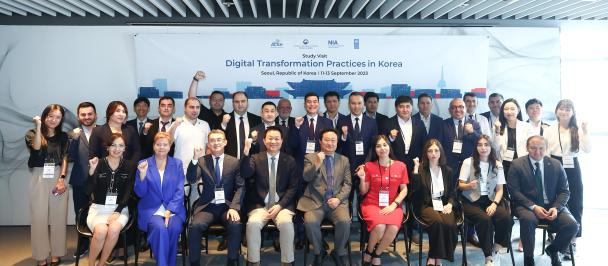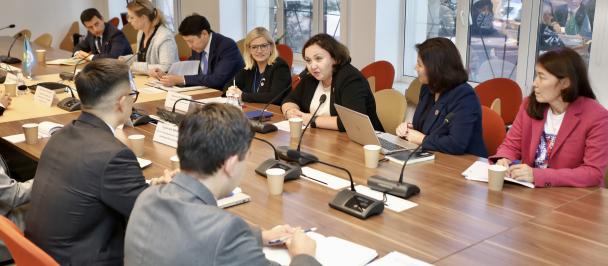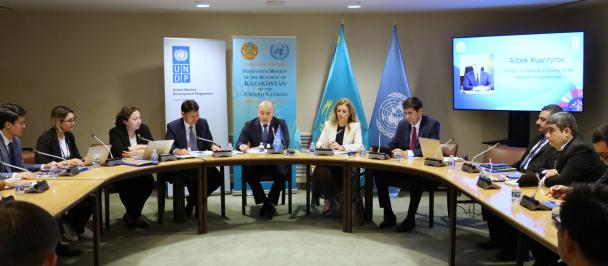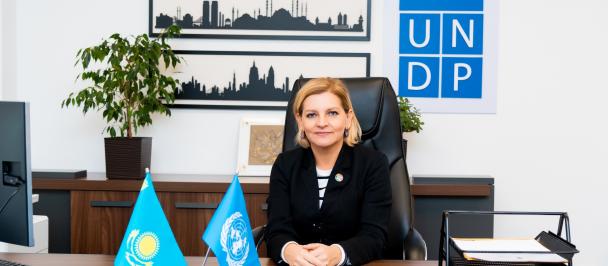Best practices in the development of digital government policy were presented by international experts of the OECD to civil servants of Central Asia and the Caucasus
October 26, 2022
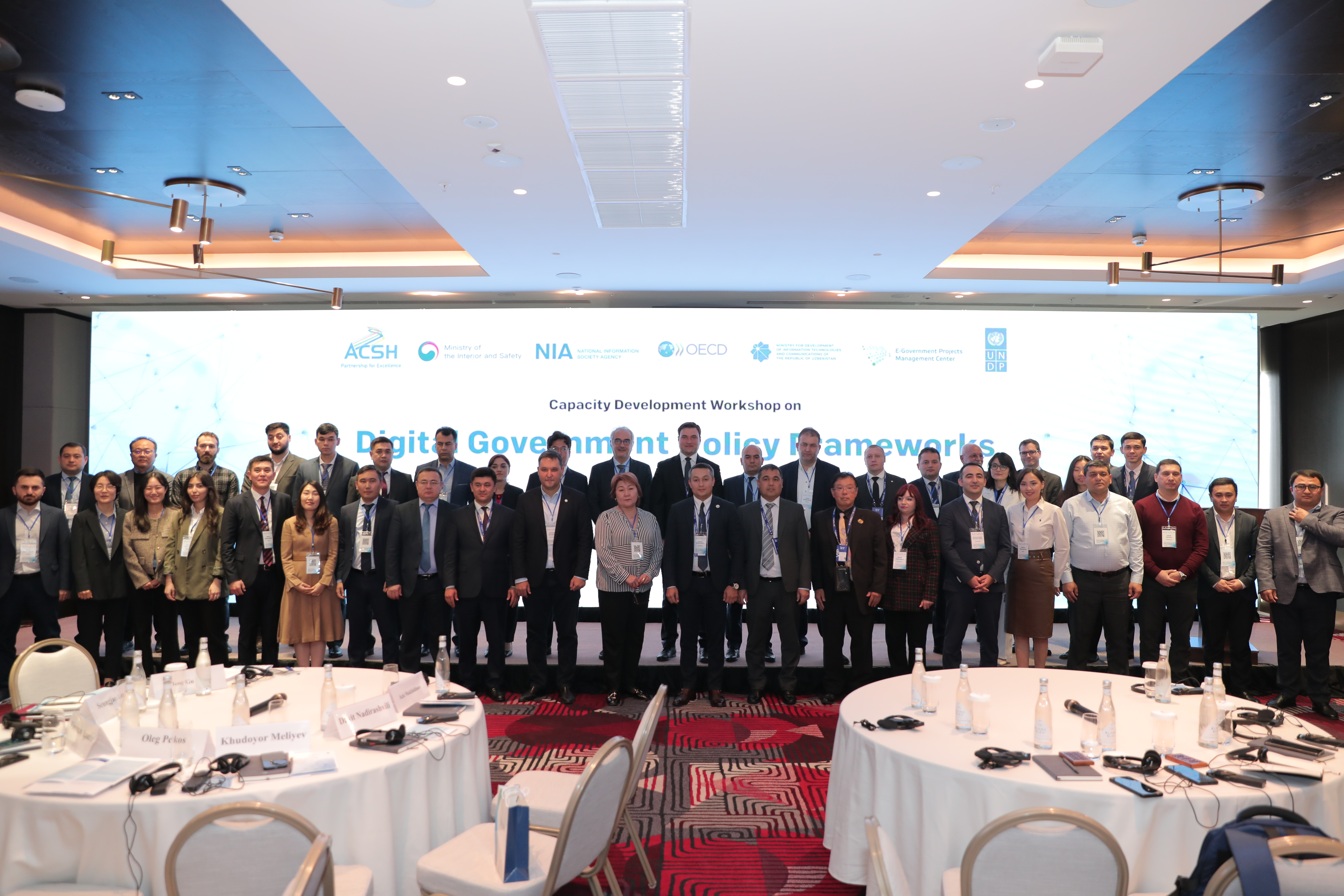
A capacity development workshop on “Digital Government Policy Frameworks” was held in Samarkand, where more than 60 representatives of the authorized bodies of the countries of Central Asia and the Caucasus explored best practices in the development and implementation of digital government policy frameworks. They also reviewed the findings of the UN E-Government Survey 2022, with an emphasis on the countries of the region.
At the opening ceremony, the First Deputy Minister for the Development of Information Technologies and Communications of the Republic of Uzbekistan Oleg Pekos noted that “During the pandemic, everyone was convinced of the importance of the accelerated introduction of digital technologies in our daily life, particularly in public administration, the provision of public services, and the social field”. He also noted that “to solve the priority issues and challenges of the “digital” agenda, it is required to have close interaction and cooperation with foreign partners and colleagues, including through the expansion of dialogue, the formation of common standards and approaches based on the best world practices”.
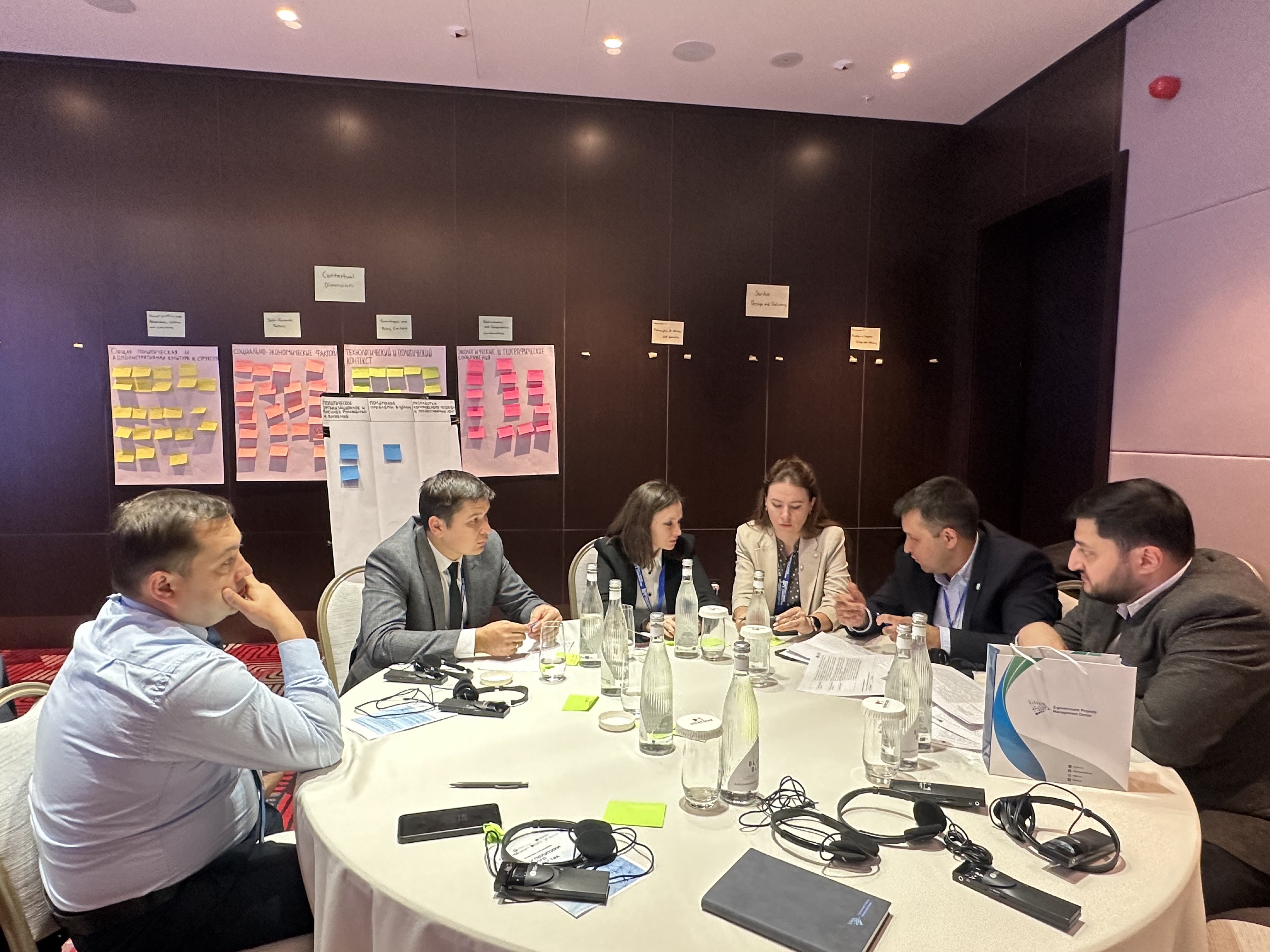
The Head of the Digital Government Policy Team of the MOIS Digital Government Bureau of the Republic of Korea Seungjae Lee emphasized that “digital transformation extends to all areas of government…and the Korean government, through digital government policy, is striving to improve the efficiency and transparency of government to make changes that people can feel”. “The government also recently announced its plan to move forward to the 'digital platform government' where all data are connected to solve social problems and create new values. By sharing experience and cases with each other through this programme, we have the opportunity to increase the capacity of civil servants and further develop digital government” – said Seungjae Lee.
In his opening remarks, Chairman of the Steering Committee of the Astana Civil Service Hub Alikhan Baimenov, noted that “the new reality we live in today triggers governments around the globe to accelerate the application of new technologies and innovation that proved to be effective tools for public administration and public service delivery”. Baimenov also highlighted that “among others, it is significantly important to develop aligned digital government policy frameworks which consider both modern trends and the growing citizens’ expectations. Undoubtedly, the quality of such policy frameworks will benefit if international experience and best practices are taken into account”.
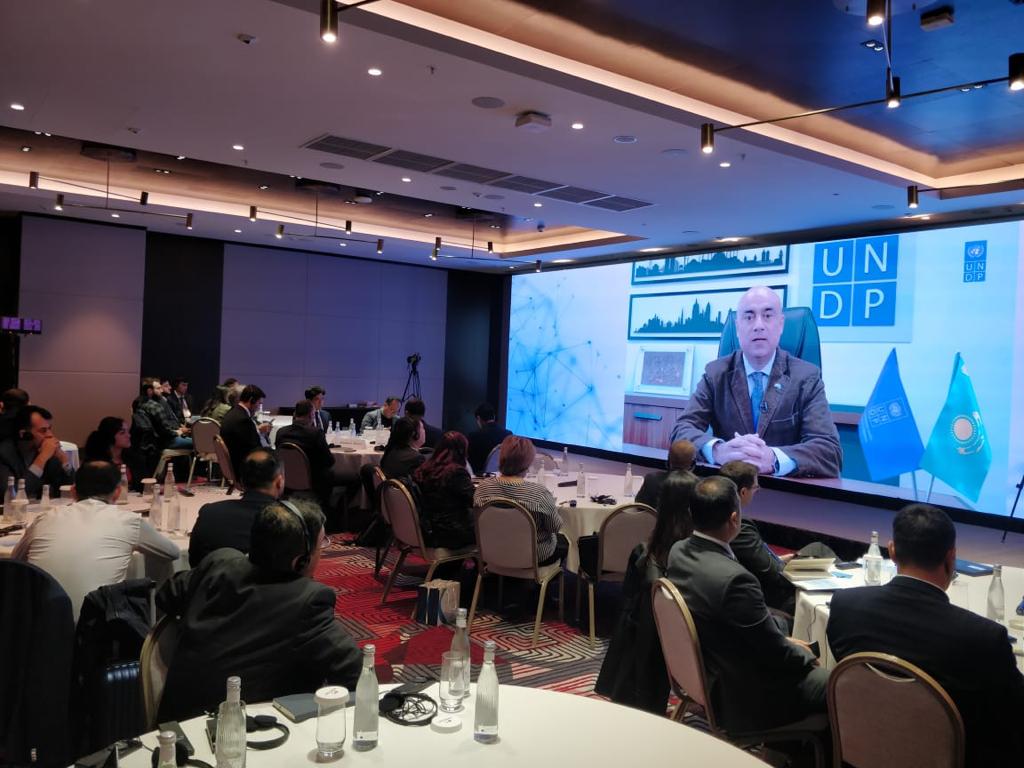
The UNDP Resident Representative a.i. in Kazakhstan Sukhrob Khojimatov noted that the “joint project with the Government of the Republic of Korea coincides with the launch of the UNDP’s new digital strategy to effectively cope with the issues and challenges of digital reality to achieve the sustainable development goals. Digitalization is a key enabler for sustainable development that helps to reach the most vulnerable utilising innovations brought by technological progress. Today, most governments around the world are increasing their efforts for their country's digital transformation, creating opportunities to deliver faster and more efficient services to citizens for a more open government and restore public trust”.
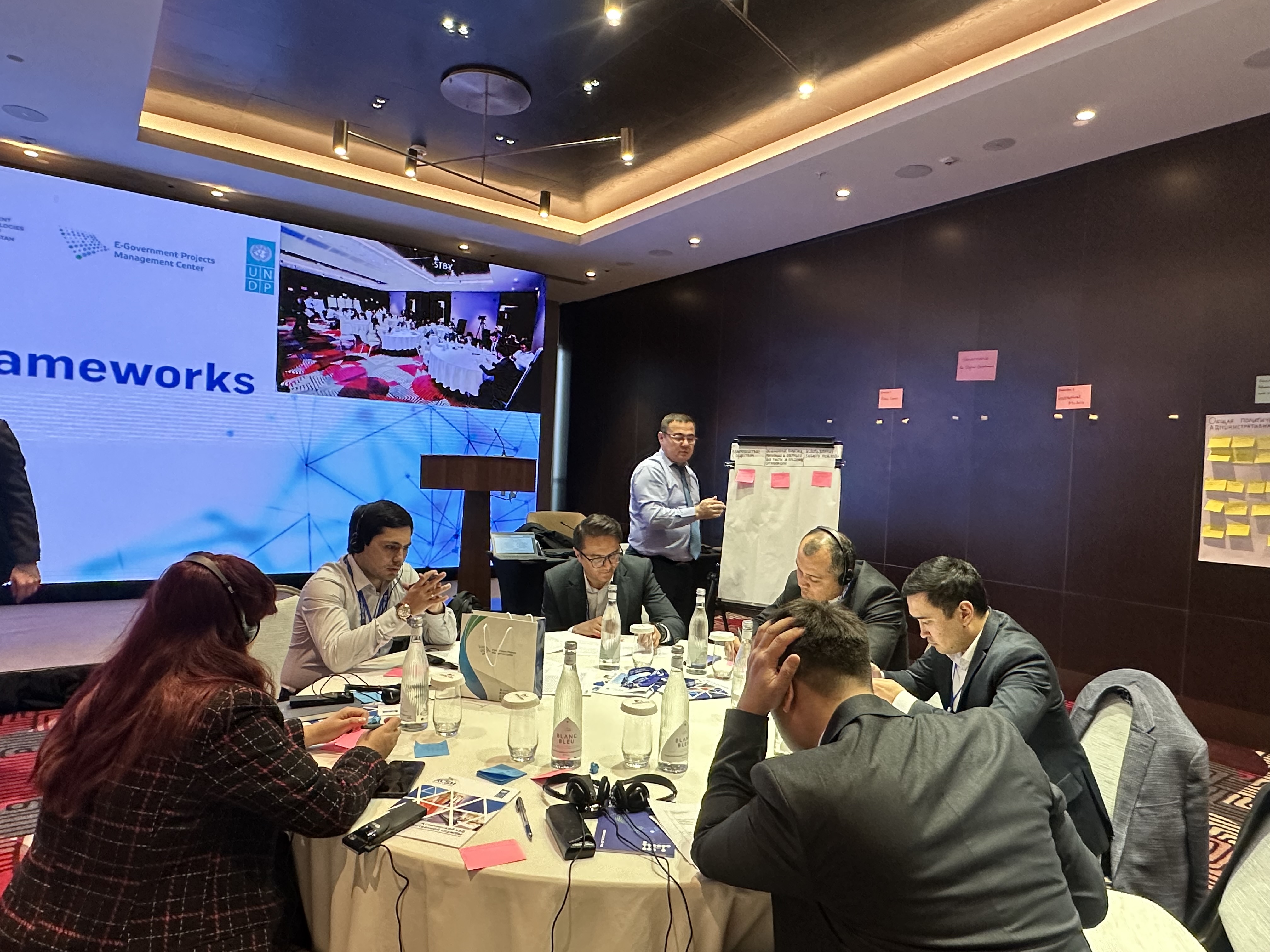
During the event, international experts of the Republic of Korea and the OECD presented successful cases and dimensions of the Digital Government Policy Frameworks (DGPF). The participants also had an opportunity to interact, discuss and analyse challenges and issues they are confronted with in their respective countries, as well as get recommendations for effective policy development and implementation.
The second day of the event was held as part of the ICT Week, where the Government of Uzbekistan, in particular, the e-Government Project Management Centre under the Ministry for IT and Communications of the Republic of Uzbekistan, in cooperation with the United Nations Department of Economic and Social Affairs (UN DESA) presented the findings of the UN e-Government Study 2022 and showcased regional trends in this area. During the event, leading experts of the Estonian e-Government Academy (EGA) presented successful innovative projects in digital transformation. In addition, the participants visited the International IT Exhibition "ICTEXPO", where they got acquainted with new technologies, approaches and projects of the Republic of Uzbekistan.
The two-day workshop was organized by the Astana Civil Service Hub (ACSH), the UNDP in Kazakhstan, the Ministry of the Interior and Safety (MOIS), the National Information Society Agency (NIA) of the Republic of Korea, the e-Government Project Management Center under the Ministry for Development of ITC of the Republic of Uzbekistan and with the support of the UNDP in Uzbekistan and the OECD.
***
The event is the next event of the joint regional project of UNDP, Hub, MOIS and NIA, aimed at increasing the capacity of civil servants and practitioners involved in the implementation of innovations in the system of public administration and digitalization of public services in seven countries of Central Asia (Kazakhstan, Kyrgyzstan, Tajikistan and Uzbekistan) and the Caucasus (Armenia, Azerbaijan, Georgia). The project is designed for three years (2021-2023) and includes research, seminars, conferences, as well as study visits to the Republic of Korea.

 Locations
Locations